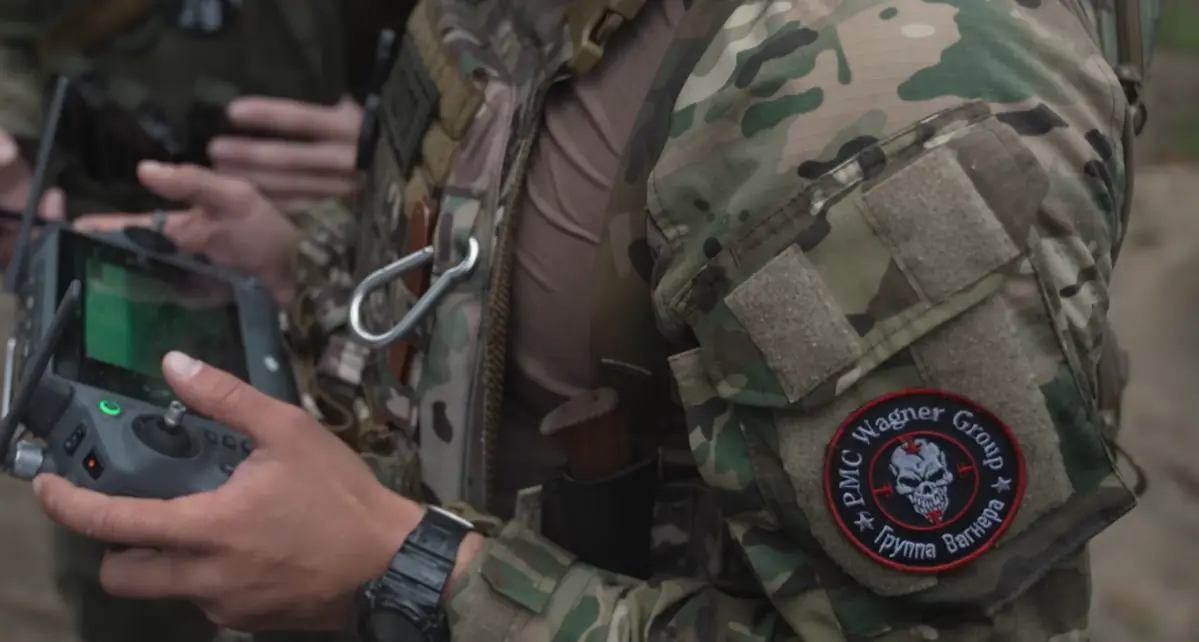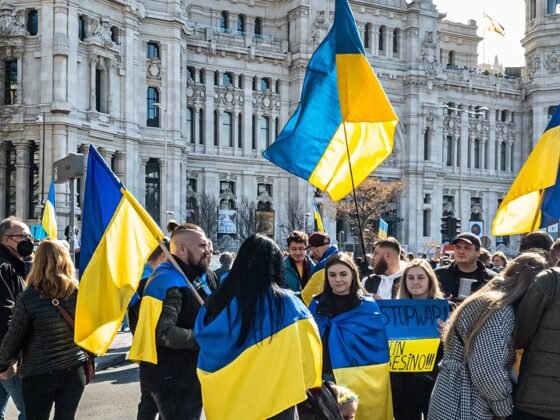Following the June 2023 mutiny of Russia’s Wagner Group and the August death of its primary contractor, Yevgeny Prigozhin, in a suspicious plane crash, it seemed that the paramilitary outfit was on its way to oblivion. Yet a year later the Wagner Group is alive and well, under new and more stringent management. Men wearing Wagner Group insignia participated officially in Russian Victory Day events in May 2024, and during the spring the group resumed recruiting for its Africa operations on its Telegram channel.
State oversight of the Wagner Group, while clearly more restrictive than before, is now confusingly split between three organizations: the Russian National Guard; Chechen leader Ramzan Kadyrov’s Akhmat special forces group (which is technically part of the National Guard); and Russia’s military intelligence agency (known as the GRU). This arrangement mirrors the coup-proofing strategy long followed by Russian President Vladimir Putin’s regime, creating overlapping and competing responsibilities across security agencies. But it leaves in question what exactly Wagner Group forces are now being trained to do, and whether they are capable of serving the same purposes for Russia as they did in the past. The continuation of their unique institutional identity also raises potentially disturbing questions about what their role will be in the inevitable post-Putin transition.
The Wagner Group in Belarus, Russia, and Ukraine
The June 2023 mutiny was carried out by troops who had recently fought in the grinding Bakhmut infantry battle of Russia’s war against Ukraine. The vast majority of mutineers were probably poorly trained and ill-equipped former prisoners, freed the previous summer in a deal between Prigozhin and the state, and hence intensely loyal to him. In Bakhmut, they were led by battle-hardened veterans from the group’s exploits in Syria and Africa, but Wagner Group forces deployed in those far-off locations in June 2023 did not participate in the mutiny. This may help explain why the group has been allowed to remain in existence.
Immediately after the mutiny, its participants were sent to a camp in neighboring Belarus, through a deal worked out with Belarusian leader Aleksandr Lukashenko. That camp was already being dismantled, though, by late August 2023, and most Wagner Group forces likely dispersed when it became clear that Lukashenko would not pay them. According to the UK Defence Intelligence Agency, only 1,000 of the 8,000 Wagner forces originally sent to Belarus remained there in early 2024, where they were likely training Belarusian Interior Ministry forces on contract.
In Fall 2023, all Wagner Group forces were officially placed under the command of Russia’s National Guard (Rosgvardia). It is not clear how those returning from Belarus were regrouped, but the command change also applied to those rotating back home to Russia from Africa and Syria. The Wagner Group announced the Rosgvardia transition on its Telegram social media channel in October 2023, saying that “the entire structure” of the Wagner Group would nonetheless remain the same.
Rosgvardia itself was created in 2016. Its approximately 400,000 troops incorporated what had been Russian Interior Ministry and specialized police forces, including the OMON anti-riot and SOBR rapid-reaction troops. The organization reports directly to Putin, and its chief is longtime Putin crony and former bodyguard Viktor Zolotov. It is widely seen as a force Putin created to defend his power in the event that it was challenged by popular rebellion or another armed organization. Rosgvardia is primarily responsible for domestic security, but by late 2023 it had also assumed the duty of enforcing order and control in Russian-occupied areas of Ukraine. (This makes sense given Russia’s official annexation of those regions, even if the move is unrecognized by anyone else.) By early 2024, according to the Ukrainian government, 35,000 Rosgvardia troops had been deployed to occupied Ukraine.
According to the UK Defence Intelligence agency, three Wagner assault detachments were incorporated into a newly legalized Rosgvardia “Volunteer Corps” for deployments abroad in late December 2023. This same agency believes (based on an authenticated video made by Wagner’s purported new field commander, Anton Yelizarov, whose call sign is Lotos) that the new Wagner/Rosgvardia base camp is in Rostov, near the Ukrainian border, collocated with Russia’s 150th Motorized Rifle Division of tank and artillery forces.
The previous Wagner Group base (closed after the mutiny) was collocated with a very different Russian security organization: the GRU special forces in Molkino. The new connection with Russian regular military forces may therefore imply that these Wagner/Rosgvardia detachments are now primarily being prepared for conventional battle. But that raises the question of why they were placed under the purview of Rosgvardia, as opposed to the Defense Ministry per se.
There are two likely explanations for this placement, neither related to military efficacy. First, Prigozhin’s mutiny was primarily sparked by a new 2023 state requirement that all members of “volunteer groups” fighting in Ukraine had to sign individual contracts with the Defense Ministry. Now these Wagner Group members have signed contracts with Rosgvardia instead, removing a potential irritant to their service for Russia, even though (as discussed below) they remain under Defense Ministry command in battle. Second, since Rosgvardia reports directly to Putin through Zolotov, Rosgvardia oversight may give the Kremlin greater peace of mind about the activities of these former mutineers when they are at home in Russia.
The Chechen Connection
In an unexpected twist, in late October 2023 the Russian news service TASS announced that 170 Wagner Group members had joined Chechen leader Ramzan Kadyrov’s Akhmat special forces group, despite earlier tensions between Kadyrov and Prigozhin. Kadyrov lauded their “excellent combat experience… as brave and efficient warriors.” Given the Akhmat group’s prior reputation in Ukraine as “Tik Tok troops,” with lots of publicity but few real accomplishments, the addition of these Wagner Group forces might have made a real difference to their wartime performance.
Long seen as Kadyrov’s personal protection and security force, the Akhmat group is officially the Russian Republic of Chechnya’s component of Rosgvardia. It is led by Maj. Gen. Apti Alaudinov, who is considered a possible future successor to Kadyrov. In May 2024, Alaudinov was promoted by Putin to a senior role within the Ministry of Defense (while retaining his Akhmat group command), amid reports that Kadyrov may be terminally ill. If these reports about Kadyrov’s health are correct, then having battle-hardened forces under Alaudinov’s command might also deter renewed conflict in Chechnya following Kadyrov’s death.
Four Akhmat units were sent into battle as “volunteers” under Russian Defense Ministry command in Ukraine in June 2022, publicly signing contracts with the ministry at a point when Wagner Group forces refused to do so. By summer 2023, some Akhmat fighters were reportedly performing Rosgvardia-style policing activities in the area surrounding the Zaporizhzhia nuclear power plant in Ukraine (which remains under Russian control), while others had replaced Wagner Group infantry forces withdrawn from Bakhmut.
In December 2023, the Russian official news agency TASS reported that a new Kamerton (“tuning fork”) detachment of Wagner/Akhmat fighters had waged a successful battle in Bakhmut. Then, in April 2024, Kadyrov announced on his Telegram channel that 3,000 Wagner Group forces would be joining the Akhmat group under the leadership of longtime Wagner Group commander Aleksandr Kuznetsov (whose call sign is Ratibor). It remains unclear from publicly available sources what the precise relationship is, if any, between the Wagner/Rosgvardia general detachments and the Wagner/Akhmat detachment.
Wagner in Africa and Syria
Meanwhile, Wagner’s long-range expeditionary forces remain where they were before the mutiny—the Central African Republic (CAR), Sudan, Mali, Syria, and with warlord Khalifa Haftar in eastern Libya—but now as part of what the Russian state calls the Africa Corps. (Syria is apparently included in Russia’s Africa Corps deployments despite its location in Asia.) In recent months, the Africa Corps has expanded its presence geographically, deploying hundreds of new forces to Niger, Burkina Faso, and Chad. Military juntas there seem to have chosen Russia over their states’ former French and U.S. security patrons, much as CAR and Mali did in years past.
Nazi Germany also had an Africa Corps. Despite much commentary by pundits on the similarity in names, however, there is no evidence that the Africa Corps is a neo-Nazi organization. Indeed, the Africa Corps appears to have mixed 2,000 regular Russian soldiers and officers in with Wagner Group and other paramilitary members. While it might seem that its purpose is to dilute the Wagner Group label, this leaves unanswered why the Wagner Group is still being allowed to recruit new troops for Africa under its own name.
The Africa Corps has been placed under GRU (and hence, ultimately, Defense Ministry) control. That move was anticipated because of a series of August 2023 trips by Andrey Averyanov, head of GRU covert operations (including assassinations) and Deputy Defense Minister Yunus-bek Yevkurov to meet with African leaders. Averyanov reportedly told them that GRU officers would now be stationed onsite to monitor Wagner Group activities. The finalization of the GRU arrangement was first reported by a pro-Kremlin Telegram channel (VChK-OGPU) in October 2023, according to a report by the African Digital Democracy Observatory, and a unique Africa Corps Telegram channel was created a week later.
The October Telegram post said that this expeditionary force would now be led by Konstantin Mirzayants, the head of the Redut [Redoubt] Russian paramilitary force that has long been active in Syria (including under its former name of Shchit’ [Shield][1]). Redut, like so many other Russian paramilitary groups, also sent units to Ukraine in 2022. Redut shares historical roots with the Wagner Group but has also been seen as its competitor. Russian oil and phosphate magnate Gennady Timchenko was likewise reported by the Telegram post to be involved with the Africa Corps, which is not surprising: Timchenko (like Zolotov) is a trusted crony from Putin’s years in the St. Petersburg mayor’s office, and Shchit’/Redut had primarily been guarding his businesses in Syria before engaging in Ukraine.
The Africa Corps is reportedly struggling to meet both its personnel goals and its vaunted security purposes for African regimes. Although it originally announced grand plans to hire 20,000 forces, it has nowhere close to that number yet. Its current presence in Mali, for example, is down to 1,000 troops, just half what the Wagner Group had there in 2023, and its reputation in Mali is mixed at best, according to Antonio Giustozzi. While it helped the Malian junta regain territory from Tuareg rebels, this broke a longstanding ceasefire and reinflamed an ethnic opponent of the regime. Wagner has also carried out massacres and other human rights violations that may be pushing the Malian population into the arms of two different sets of local Islamist extremist rebels while accomplishing little in counterterrorism terms.
In May 2024, the UK Defence Intelligence agency reported that Africa Corps members had been sent to fight in Russia’s Kharkiv offensive in Ukraine. Russia’s long war of attrition in Ukraine, and its insatiable need for more contract troops to avoid general mobilization, will likely continue to sap Moscow’s ability to deploy many forces further abroad. Ukraine itself has provided an additional challenge to Russia in Africa, sending commandos on behalf of the Sudanese government to fight Wagner Group-supported rebels in Sudan.
Yet in May 2024 investigative sources also reported that thousands of Russian forces had been newly deployed to eastern Libya. While some were sent onward to the new Africa Corps deployment in neighboring Niger, most remained to train and exercise with Haftar’s forces. It remains unclear what their ultimate goal is, as well as why Russia is prioritizing Libya at a time when it is withdrawing other African forces to fight in Ukraine. It is likely that Russia seeks to establish a new military base in eastern Libya, located on the Mediterranean coast directly across from Europe and Turkey, as part of its ongoing conflict with NATO.
Conclusion: Is Wagner Still Wagner?
The Wagner Group has served many different purposes for the Putin regime in its decade-long existence. One of its most important attributes has been its flexibility: it served as a contracting mechanism to send personal guards and trainers to the Central African Republic in 2018, highly trained and disciplined snipers to Haftar’s civil war against the Libyan government in 2020, and both counterinsurgency and ordinary infantry units to many places where it has been deployed. It is currently unclear whether the group’s placement under Rosgvardia will allow it to maintain that flexibility in the future, since Rosgvardia’s uses have been more limited.
GRU control of the entire Wagner Group would have been more logical. The GRU has long had special forces (spetsnaz) units known for their flexibility and initiative, and in Soviet times the GRU did a great deal of work with client armies and militias abroad. Given the GRU’s close relationship with the Wagner Group from the start, though, Putin may have decided after the mutiny that he could not fully trust its control abilities. Perhaps the current split in oversight between Rosgvardia and the GRU portends the creation of a new contracting mechanism whereby most Wagner Group forces are relegated to the infantry or other roles in Ukraine, while the GRU handpicks those it wants for more specialized expeditionary roles.
The Wagner Group also allowed Putin to experiment with expanding Russia’s reach in places like Syria and Africa while keeping casualties out of the news at home. The Russian public seemed not to care much about the fate of Wagner Group fighters, since they had a reputation for being misfits engaged in profit-making mercenary behavior. The Africa Corps, with its blend of regular and Wagner Group troops, may no longer be able to make such bold moves without pushback from the Russian public. Its geographical expansion into the Sahel, a hotbed of Islamist extremist terrorist activity, also puts its forces in increasing danger.
Unanswered questions remain. One mystery is who is now controlling Prigozhin’s many business enterprises in Africa. There was a flurry of speculation in fall 2023 about who was competing to take them over, but that topic has now largely disappeared from major news sites.
A final puzzle is what the continuation of the Wagner Group brand will mean for long-term Russian domestic politics and stability. In the short term, Prigozhin’s death seems to have strengthened Putin’s control. It did not provoke much of a reaction from Wagner Group members, many of whom continue to work on behalf of the regime, and Prigozhin has not been portrayed as a martyr. But that may only have been because he himself had no combat experience and was making money off the lives of Wagner Group fighters.
Putin has also now housed Wagner Group forces located within Russia under two organizations whose leaders (Zolotov and Alaudinov) have good reason to remain intensely loyal to Putin. But neither the National Guard as a whole, nor the Akhmat special forces group, are deeply institutionalized organizations in the Russian state. They are instead highly personalistic creations of the Putin era. When Putin inevitably leaves the scene, whether by natural death or otherwise, it is unclear where these groups’ loyalties will fall amidst what will likely be intense internal competition among Kremlin elites.
Meanwhile, the Wagner Group has been allowed to retain its brand name and hence its social and historical identity. Its members are gaining even more combat experience, as well as new training in the policing of restive populations. The last chapter of the Wagner Group has not been written, and it remains to be seen what roles its armed and potentially dangerous members might play in a post-Putin transition.
Kimberly Marten is Professor of Political Science at Barnard College, Columbia University.
[1] The group’s activities in Syria, as well as its name transition from Shchit’ to Redut, were reported on by Novaya Gazeta on July 28, 2019, and Aug. 10, 2022.











